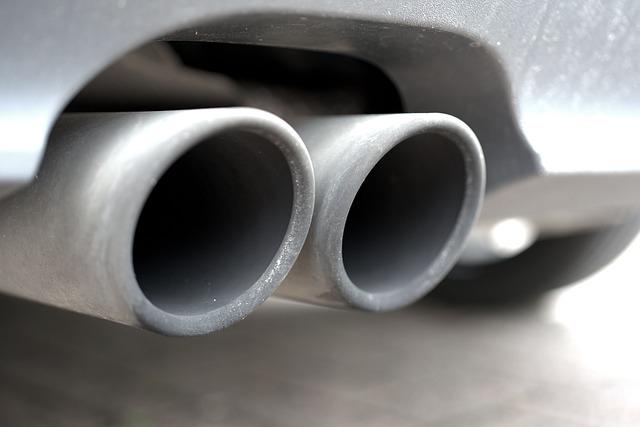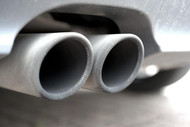Muffler vs Catalytic Converter: What's the Difference?
16th Jun 2022

Mufflers are catalytic converters are two common components of automotive exhaust systems. Most vehicles have a catalytic converter and a muffler. Like other exhaust system components, they are connected to the engine. Combustion gases will exit the engine, after which they'll travel through the muffler and catalytic converter before exiting the tailpipe.
What Is a Muffler?
A muffler is a sound-dampening device. Internal combustion engines (ICEs) are quite powerful. As a result, they produce a lot of noise during use. Your vehicle's engine will produce noise as it burns gas and air. The muffler's job is to suppress this noise to provide a quieter driving experience.
Most mufflers consist of a series of tubes and channels, some of which are perforated with small holes. Exhaust gases will travel through these tubes and channels where the pressure is decreased. By decreasing the pressure of the exhaust gases, the muffler will make it quieter. High-pressurized exhaust gases create more noise than low-pressure exhaust gases. The muffler works by reducing the pressure of exhaust gases so that it becomes quieter.
What is a Catalytic Converter?
A catalytic converter is an exhaust system component that's designed to create cleaner exhaust gases. It will convert the harmful byproduct gases into less-harmful gases. When exhaust gases initially leave the engine, they consist of harmful byproduct gases. The catalytic converter will convert them into less-harmful gases so that they don't harm the environment.
It's known as a "catalytic converter" because it leverages a "catalyst" to perform this conversion. The catalyst typically consists of either platinum or palladium, which is coated over a honeycomb structure. When exposed to the catalyst, exhaust gases like carbon monoxide will be converted into carbon dioxide, nitrogen or even oxygen.
Differences Between Mufflers and Catalytic Converters
While they are both exhaust system components, mufflers and catalytic converters aren't the same. Mufflers are designed to dampen the noise of exhaust systems by reducing the pressure of exhaust gases. Catalytic converters, on the other hand, are designed to convert harmful byproduct gases into less-harmful byproduct gases via a catalyst.
Most states require vehicles to have a functional catalytic converter. Without a catalytic converter, you typically won't pass an emissions test. The catalytic converter will create cleaner emissions.
Additionally, a muffler is typically required as well. Most states don't explicitly require a muffler on vehicles, but they do have noise ordinances. If you drive around without a muffler on your vehicle, you could violate these ordinances.

